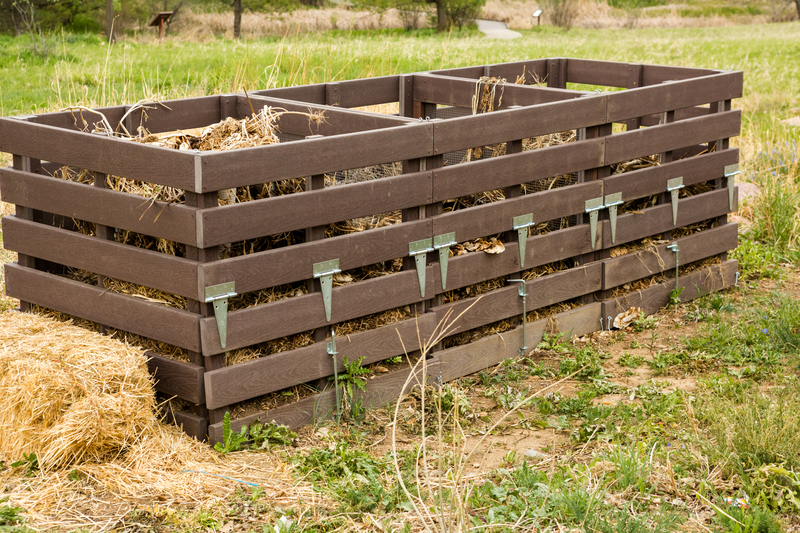Bulky Waste Items: Resourceful Ideas to Cut Costs and Save Big
Bulky waste items like old furniture, mattresses, large appliances, and garden debris can pose a challenge for homeowners and businesses alike. Removing these large objects can be costly, especially if you rely on traditional disposal services. However, with a little creativity and resourcefulness, you can cut costs on bulky waste disposal and save big. This comprehensive guide explores innovative ideas to manage, reuse, and efficiently get rid of your bulky waste while being environmentally responsible and frugal.
Understanding Bulky Waste: What Qualifies as Bulky Items?
Before diving into cost-saving solutions, it's important to know what falls under the category of bulky waste items. Typically, these are household or commercial items too large to fit into standard waste bins or be collected by routine garbage pick-up. Examples include:
- Furniture: sofas, beds, wardrobes, tables, chairs
- Large appliances: fridges, washing machines, dishwashers, ovens
- Mattresses and box springs
- Carpets and rugs
- Yard waste: branches, tree trunks, large cuttings
- Electronics: TVs, computers, printers
- Other oversized household goods
Knowing what qualifies as bulky rubbish or large waste items will help you explore the right solutions for disposal and cost reduction.

Why Bulky Waste Removal Can Be Expensive
Disposing of bulky items often incurs fees from local councils, private collection companies, or landfill sites. Costs can include:
- Transport fees for pickup
- Landfill charges per item or per ton
- Labor costs for heavy lifting and moving
- Additional recycling fees for certain materials, like mattresses and electronics
Repeated collection or improper disposal can lead to fines, further increasing the cost. That's why discovering resourceful ideas to manage your bulky waste is essential for your wallet and the environment.
10 Resourceful Ideas to Cut Costs and Save on Bulky Waste Disposal
1. Repurpose or Upcycle Furniture and Appliances
One person's trash is often another's treasure! Before tossing out large waste items, consider their potential for repurposing. Here are some creative ways:
- Convert an old wardrobe into a stylish bookshelf
- Turn broken chairs into statement garden plant stands
- Use parts from non-working appliances for art projects or DIY repairs
- Transform a mattress into pet beds or outdoor cushions
Repurposing prolongs the life of bulky items, reducing what ends up in landfills and saving you money on replacement goods.
2. Donate to Charities or Community Groups
Many charities accept furniture, appliances, and other bulky items in usable condition. Organizations like the Salvation Army, Goodwill, and local shelters may even offer free pickup services. This is a win-win: you cut disposal costs and help someone in need.
- Check charities' guidelines for accepted items and pickup options
- Consider schools, theaters, or community centers for unique item donations
- Use online platforms to connect with groups in need of particular items
3. Sell Bulky Waste Items Online
If your large items still have life left, selling them online is a great way to recoup costs and avoid disposal fees. Popular platforms include:
- Facebook Marketplace
- Craigslist
- eBay
- OfferUp
- Local classified ads
Be honest about the item's condition, and consider offering at low or negotiable prices to attract local buyers and minimize removal time.
4. Host a Garage Sale Specifically for Bulky Goods
A well-advertised garage sale can help you offload several large waste items in one go. Team up with neighbors to maximize foot traffic and variety of goods. Remember to:
- List item dimensions and conditions in advance
- Price items to sell quickly
- Offer help with loading if necessary
5. Utilize Local Council Bulky Waste Collection Services
Many municipalities offer bulk trash pickup days or scheduled collection services for residents. Tips to minimize your expenses:
- Check collection schedules and guidelines for accepted items
- Consolidate multiple items into a single pickup to maximize value
- Book in advance--slots may fill quickly, and late bookings can cost more
6. Share Disposal Costs with Neighbors
If hiring a skip bin or dump truck, consider splitting the expense with neighbors. Pooling your bulky waste items lowers the per-household disposal cost. Coordinate collection for:
- End-of-lease clear-outs
- Spring cleaning days
- Neighborhood road or alley clean-up events
7. Find Specialist Recycling Facilities
Appliances, electronics, and mattresses can often be recycled rather than sent to landfill. Many regions have specialist recyclers who process:
- E-waste (computers, TVs, printers)
- White goods (fridges, washing machines)
- Mattress and carpet recycling plants
Some recycling drop-off sites are free, or much cheaper than regular disposal. Check their accepted items and any preparation guidelines (such as removing doors from fridges).
8. Organize a "Take It or Leave It" Day
Encourage reuse in your community by hosting a swap event. Residents leave unwanted large items at a designated curbside or community space for others to take free of charge. Rules to make it successful:
- Schedule a date and promote it widely
- Place acceptable, safe items only
- Arrange for leftover items to be donated or collected by the council
9. Contact Manufacturers for Take-Back Programs
Some companies offer take-back or trade-in programs for large appliances, electronics, or furniture. They may:
- Collect old appliances when delivering new ones
- Offer discounts for recycling your old items
- Legally dispose of or refurbish items
This option is particularly resourceful with electronics and mattresses, as proper recycling helps avoid landfill fees and environmental harm.
10. DIY Break Down and Safe Disposal
For certain items, it's more cost-effective to disassemble and dispose of them in parts. For example:
- Take apart beds or cupboards to fit them in regular waste bins
- Cut up carpets and rugs for curbside trash
- Dispose of scrap metal at metal recycling centers
*Note: Always follow your local disposal regulations.* Some materials (like fridges or certain electronics) can be hazardous if not handled properly.
Common Mistakes When Disposing of Bulky Waste and How to Avoid Them
Proper management of bulky rubbish saves you time, money, and hassle. Here are pitfalls to avoid:
- Illegal dumping: Leaving items on the sidewalk or in public spaces can lead to hefty fines.
- Not checking for recycling options: Many large waste items are recyclable--sending them to landfill is wasteful and can be costly.
- Poor scheduling: Missing council collection days or last-minute bookings can increase your costs.
- Ignoring safety precautions: Mishandling appliances or breaking down bulky objects without proper tools can cause injury or damage.
Environmental Benefits of Smart Bulky Waste Management
Resourceful bulky waste solutions don't just help your budget--they also protect the environment. Here's how:
- Keeping usable items in circulation reduces demand for new products
- Proper recycling saves energy and recovers valuable materials
- Less landfill use prevents soil and water pollution
- Donation helps social programs and those in need
By thinking ahead and using creative solutions, you contribute positively to your community and planet.
The Best Bulky Waste Removal Ideas by Item Type
- Sofas & Furniture: Donate if clean and structurally sound. Repurpose or sell partially damaged items. Use dismantling and skip bins as a last resort.
- Appliances: Recycle at specialized facilities. Use manufacturer take-back where possible. Don't leave fridges or washers outdoors.
- Mattresses: Look for mattress recycling programs--these are often free through councils or environmental groups.
- Yard Waste: Compost on-site, rent chipper/shredder to create mulch, or schedule green waste collection.
- Electronics (E-waste): Always use e-waste drop-off points. Many states/counties offer free e-waste days.
The key to affordable bulky waste management lies in knowing your options and acting before damage or storage fees add up.
How to Find Cheap Bulky Item Removal Services
If you can't donate, sell, or reuse a large item, you may need a professional removal service. Here's how to find the best rates:
- Compare multiple local providers--rates and accepted items vary.
- Ask about discounts for multiple items or combined loads.
- Read reviews to ensure you avoid hidden fees and poor service.
- Contact your local council first--residents' options are often cheaper than private providers.
Pro tip: Book removal during off-peak seasons to score lower prices.

Frequently Asked Questions About Bulky Waste Solutions
What's the cheapest way to get rid of bulky waste?
The cheapest bulky waste disposal method depends on the item and its condition. Donation is free and eco-friendly if accepted. Repurposing saves replacement costs. Coordinated council pickups are often the least expensive for truly unusable items.
Can I leave large items on the curb for regular trash?
Usually not. Most municipalities require special arrangements or scheduled pickup for bulk trash removal. Unannounced curbside dumping can incur fines.
What bulky waste items can be recycled?
Common recyclables include appliances, some furniture, e-waste, mattresses (in participating areas), and metal objects. Always check with local recycling centers for accepted materials.
How can I get rid of an old mattress for free?
Try mattress recycling programs, manufacturer take-back, or donation if in good condition. Some charity shops and environmental groups offer free mattress pickup days.
Should I hire a skip bin for bulky waste?
If you have multiple bulky items or a large project (like renovations), a skip bin may be cost-effective--especially if shared with neighbors. Always compare prices and check for restricted materials before booking.
Conclusion: Turn Bulky Waste Into Big Savings
Discarding large, bulky items doesn't have to be expensive or wasteful. By exploring creative, resourceful approaches--such as donating, repurposing, recycling, and sharing disposal services--you'll dramatically cut costs and lessen your environmental impact.
Always start by re-evaluating the value of your bulky waste, checking free and low-cost removal programs, and properly preparing items for safe handling. With the right strategy, turning bulky rubbish into a resource can mean cleaner homes, stronger communities, and significant savings on your disposal bills.
Start using these resourceful ideas for bulky waste today--and watch your savings grow!
